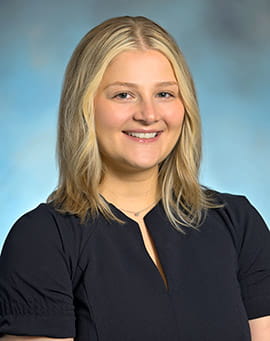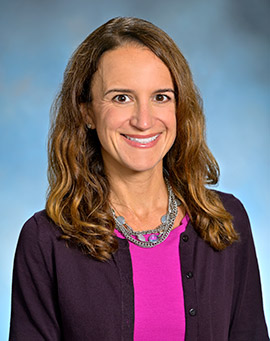Oncology Nutrition Services
Eating healthy is important for your body, mind and spirit. Nutrient-dense foods provide vitamins, minerals and antioxidants that can help your body heal and lower the risk of illness. During and after treatment, building a well-balanced diet can help you regain strength, boost energy and support your long-term wellness.
About Oncology Nutrition Services
Cancer and its treatments can change your relationship with food. You may feel sick, lose or gain weight, or find it hard to eat certain foods. This can make it tough to get the nutrients you need.
Main Line Health’s registered dietitians (RD/RDN) offer free outpatient nutrition counseling to patients before, during and after cancer treatment. Dietitians formulate evidence-based recommendations grounded in established nutrition guidelines, scientific research and behavioral science to promote health and manage disease.
As part of your Main Line Health oncology team, dietitians work closely with physicians, nurses and other specialists to ensure that all nutrition recommendations align with your cancer care and health goals. You will receive personalized nutrition advice and monitoring to meet your nutrient needs.
How oncology dietitians can help
What you eat and drink can have a significant impact on your health. Our dietitians can help you get the most benefit from your diet by:
- Managing common nutrition-related side effects such as loss of appetite, weight loss and gastrointestinal symptoms
- Navigating the complex market of oral nutrition supplements (ONS)
- Providing detailed education and counseling regarding dietary restrictions, texture modifications and/or tube feedings (enteral nutrition)
- Avoiding unplanned pauses in your treatment because of nutritional issues
Should I follow a special diet during cancer treatment?
Your physician or dietitian might recommend a therapeutic diet (e.g., high calorie/protein, low fiber, low fat) depending on your medical history, cancer treatment, current symptoms, weight status or personal goals. Working with an oncology dietitian can help you understand your diet and avoid unnecessary restrictions.
Should I take nutrition supplements?
Not everyone requires oral nutrition supplements (ONS). Your dietitian might suggest certain supplements to manage symptoms or help you meet your calorie and protein needs, which can change depending on your health status.
Are there foods I should avoid while undergoing cancer treatment and beyond?
It is important to eat as best you can throughout your entire cancer journey, even when treatment ends. Restricting your diet can make it challenging to eat well. Taking advantage of Oncology Nutrition Services at Main Line Health can help you better understand your diet, recognize misinformation and determine what foods and eating patterns are best for you and your health.
How do I meet the dietitian?
- Let your Main Line Health physician, nurse, nurse navigator, social worker or any team member know that you are interested in speaking with an oncology dietitian. Your dietitian will contact you as soon as possible. Nutrition assessments can be completed over the phone, or an in-person appointment can be scheduled upon request. You may also contact any of our oncology dietitians directly to request an assessment.
- The oncology nutrition service is free to Main Line Health patients. We do not bill to you or your insurance.
Meet our dietitians

Brianna Walters, MS, RD, LDN
Bryn Mawr Hospital
484.337.8665 | waltersbr@mlhs.org

Carolyn Farhy, MS, RDN, LDN
Lankenau Medical Center
Paoli Hospital
484.476.2609 | farhyc@mlhs.org
For oncology nutrition services at our other locations, contact Carolyn Farhy at 484.476.2609 or farhyc@mlhs.org.